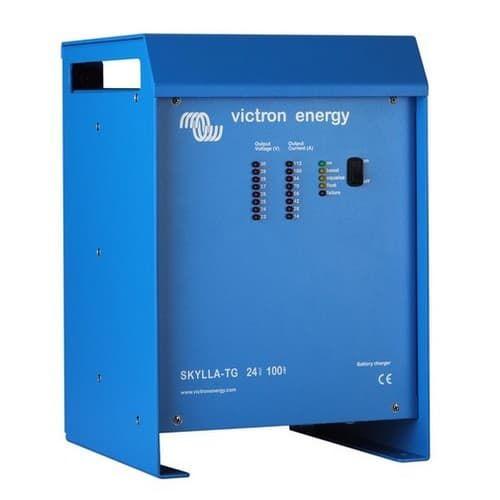the Advantages and Limitations of Forklift Charger
Forklifts are essential workhorses in warehouses, distribution centers, and manufacturing facilities, enabling the movement of heavy loads with efficiency and precision. To keep these vital machines operational, reliable forklift chargers play a pivotal role. Forklift charger is designed to replenish the energy in the forklift's batteries, ensuring uninterrupted operations. In this article, we delve into the advantages and limitations of forklift chargers, shedding light on their impact on productivity, sustainability, and operational efficiency.
Advantages of Forklift Charger
Enhanced Productivity: Forklift chargers contribute significantly to productivity by minimizing downtime associated with battery charging. Advanced chargers with rapid charging capabilities can quickly replenish battery power during short breaks or shift changes, ensuring that forklifts are ready to resume work promptly.
Efficient Energy Consumption: Modern forklift chargers are equipped with energy-efficient technologies that optimize the charging process. Some chargers offer features like demand-based charging, where the charger adjusts the charging rate based on the battery's state of charge and the energy demand of the facility. This ensures efficient energy consumption and reduced electricity costs.
Opportunity Charging: Certain forklift chargers support opportunity charging, allowing forklifts to be charged during brief breaks in operations without needing to wait for a full charge cycle. This feature can extend uptime and productivity, especially in facilities with high-demand operations.

Battery Longevity: Forklift chargers with smart charging algorithms can prolong the lifespan of batteries by preventing overcharging or undercharging. By maintaining optimal charging levels, these chargers help businesses maximize their investment in battery assets.
Sustainability: Some forklift chargers are designed to be environmentally friendly, incorporating features such as regenerative braking technology. This technology captures and converts kinetic energy generated during braking into electrical energy, which can be used to charge the battery, reducing overall energy consumption.
Limitations of Forklift Chargers
Initial Investment: High-quality forklift chargers equipped with advanced features come with a relatively higher upfront cost. Businesses need to carefully weigh the initial investment against the long-term benefits and potential cost savings.
Charging Time: While rapid charging technologies exist, some forklift chargers may still require several hours to fully charge a battery. This charging time can impact operational schedules, especially in facilities with continuous or high-demand operations.
Compatibility: Not all forklift chargers are compatible with all types of batteries or forklift models. Businesses must ensure that the charger they choose is suitable for their specific equipment and battery types.

Maintenance and Repairs: Forklift chargers, like any electronic equipment, require regular maintenance and occasional repairs. This can lead to downtime if not managed efficiently, affecting overall operational continuity.
Space Requirements: Installing forklift charging stations requires adequate space within the facility. Depending on the number of forklifts and the charging infrastructure, this can impact floor layout and utilization.
Limited Mobility: Forklift chargers are typically stationary and require forklifts to return to the charging station for replenishment. In facilities with extensive operations or outdoor areas, this limitation may affect flexibility.
Forklift chargers are integral components of efficient warehouse and industrial operations, enabling continuous productivity by ensuring a steady power supply for forklifts. The advantages they offer, such as enhanced productivity, energy efficiency, and battery longevity, are crucial for maintaining smooth workflows. However, businesses must also consider the limitations, including initial investment, charging time, and compatibility, when selecting the right charger for their needs. By carefully evaluating the benefits and challenges, companies can make informed decisions that align with their operational goals, leading to optimized forklift charging processes and overall operational success.
评论
发表评论